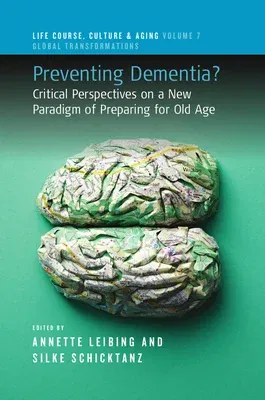Preventing Dementia?: Critical Perspectives on a New Paradigm of Preparing for Old AgePaperback, 9 June 2023

Temporarily out of stock
Free Delivery
Cash on Delivery
15 Days
Free Returns
Secure Checkout

Part of Series
Life Course, Culture and Aging: Global Transformations
Print Length
268 pages
Language
English
Publisher
Berghahn Books
Date Published
9 Jun 2023
ISBN-10
1800739370
ISBN-13
9781800739376
Description
Product Details
Book Format:
Paperback
Country of Origin:
US
Date Published:
9 June 2023
ISBN-10:
1800739370
ISBN-13:
9781800739376
Language:
English
Location:
New York, NY
Pages:
268
Publisher: